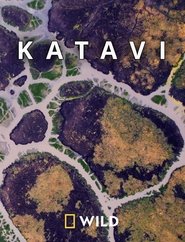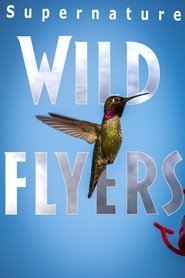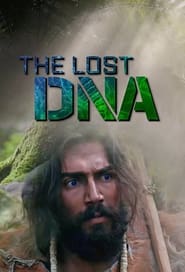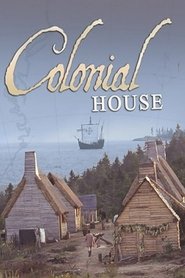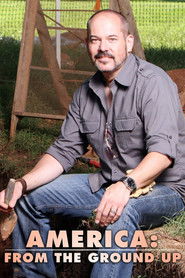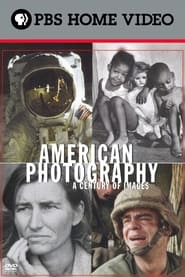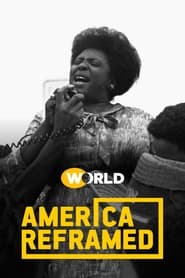Pbs TV Series - Page 34
-
Live from the Metropolitan Opera
0000
star 7.5Live from the Metropolitan Opera is an American television program that presented performances of complete operas from the Metropolitan Opera, New York City, on the Public Broadcasting Service television network. The program began in 1977, and was telecast live for its first few seasons. The first telecast, La Bohème, featured Luciano Pavarotti as Rodolfo and Renata Scotto as Mimi, with James Levine conducting; all three were interviewed during the intermission. In 1988, the program title was changed to The Metropolitan Opera Presents, to reflect the fact that the performances were now taped prior to broadcast. Live from the Met functioned as a supplement to the regular Saturday Metropolitan Opera radio broadcasts. During its first fifteen years, the program was frequently simulcast, enabling some audiences to hear the opera in stereo via radio as well. -
Dogs in the Wild
2023
Dogs in the Wild
2023
Traveling the globe to reveal the secrets of the most successful carnivores on the planet -- the canids. -
Keeping Score
2004
Keeping Score
2004
-
Betsy's Kindergarten Adventures
0000
star 10Betsy's Kindergarten Adventures is a slice of life cartoon intended for young children. The show premiered on January 19, 2008 on PBS Kids. The show follows a girl named Betsy as she starts out her school years. The series premiere shows Betsy facing the uncertainty of her first day of school and the adjustments she must make as she meets her new teacher and classmates, encounters unfamiliar rules and routines, and finds herself in an entirely new environment. Subsequent episodes show Betsy's excitement and sense of adventure as she adapts to the new experiences of kindergarten. This show is similar to other PBS Kids shows like Caillou and Clifford the Big Red Dog that cater to an audience of children between the ages of 2-6. -
Katavi Africa's Fallen Paradise
2025
An extreme weather event hits Katavi, sparking conflict and alliances among hippos, crocodiles, and lions as they struggle for survival. -
At the Chef's Table
0000
At the Chef's Table
0000
-
SuperNature - Wild Flyers
2016
An exploration of the basic principles of flight, showing how animals overcome gravity to become airborne. -
The Lost DNA
2021
The Lost DNA
2021
Cutting edge DNA research is transforming the knowledge of who we are, where we come from and how we got here. -
Colonial House
2004
Colonial House
2004
Modern day participants attempt a recreation of daily life as it would have been in Plymouth Colony in 1628. -
America From The Ground Up
2014
America from the Ground Up was filmed on location at archaeological and historical sites throughout the U.S. and Canada. Join us in the search for clues to America's hidden history: from exploring the ruins of America's lost civilizations, to the settlement of the North American continent in the 19th Century. -
Sea Change: The Gulf of Maine
2024
It is a story about the Gulf of Maine, a sea within the sea, a body of water that is warming 97% faster than the global ocean. What happens here to the animals in the water, to the jobs that are dependent upon it and to the millions of people living along its shores is likely to happen worldwide. We are at a crossroads for the future of the Gulf and all our oceans. Does it retain enough of its biodiversity and regenerative strength to weather the human-induced storm? Is the sheer beauty of this place and spectacular range of its creatures enough to wake us to what is at stake? -
American Photography: A Century of Images
1999
star 8Three-part series exploring the impact that photography has had on American life in the twentieth century. The story of pictures we have taken and where they have taken us. -
NEXT at the Kennedy Center
2022
A mix of artists across hip-hop, jazz, modern dance and more perform at The Kennedy Center. -
Great Scenic Railway Journeys
2004
Travels 13 of the most scenic tourist railways in the eastern United States. Also shows how the Great Smoky Mountains Railway staged the massive train wreck in the movie "The Fugitive," in a short clip entitled: "The making of The fugitive train wreck." -
Wild Animal Baby Explorers
2010
Wild Animal Baby Explorers is a television show designed to introduce preschoolers to the world of animals and help them develop important observation, problem-solving and listening skills. The series combines 3D animated characters and wildlife footage to introduce animal facts and nurture young viewers’ inherent love for nature. The show is based on Wild Animal Baby, a children's nature magazine published by the National Wildlife Federation. The lyrics to the shows song are "Let's explore, more and more. There's so much to learn and see." Each episode is 13 minutes, with two per viewing time. Wild Animal Baby Explorers airs on local PBS stations. The National Captioning Institute close captioned the show when seen on PBS Kids in the USA. -
Islands of Wonder
2020
Islands of Wonder
2020
Journey to three of the most exotic, mysterious and remote islands on the planet: Madagascar, Borneo and Hawaii. Isolated from the rest of the world, they harbor remarkable wildlife and pioneering human communities found nowhere else on Earth. -
America ReFramed
2012
America ReFramed
2012
America ReFramed films present personal viewpoints and a range of voices on the nation’s social issues – giving audiences the opportunity to learn from the past, understand the present, and explore new frameworks for America’s future. With weekly 60- to 90-minute independent films, followed by provocative conversations led by host/moderator Natasha Del Toro, this weekly series offers an unfiltered look at people rarely given a voice on national television.




